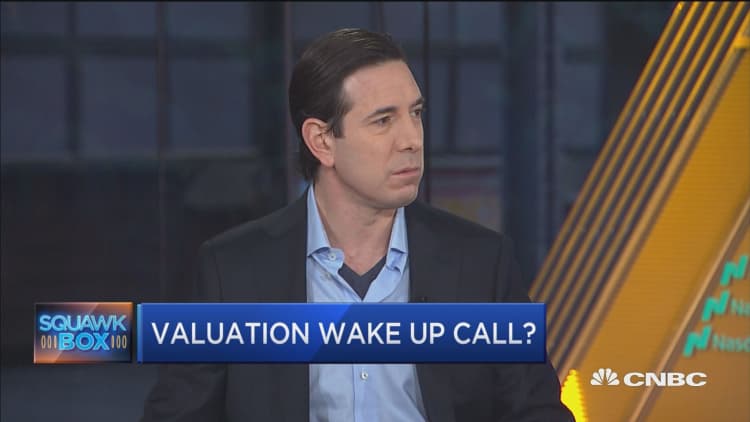Between the stock market's extreme volatility of late and the three-week-old government shutdown, the IPO market faces plenty of uncertainty in 2019. But for Uber, there's another complicating aspect — the company's biggest investor is still waiting for its board seats.
When Uber sold a 15 percent stake to SoftBank last January, the ride-hailing company agreed to give the Japanese conglomerate two board positions out of an eventual total of 17. SoftBank said its seats would go to Marcelo Claure, the company's operating chief and executive chairman of Sprint, and Rajeev Misra, the head of SoftBank's Vision Fund.
More than a year later, SoftBank is waiting for the U.S. government to give Claure and Misra the go-ahead. SoftBank has its Uber shares, but the broader deal is under review by the Committee on Foreign Investment in the United States (CFIUS), a unit of the Treasury Department that reviews certain transactions involving overseas investors.
The CFIUS process is slow even in normal times, and with the federal government in the midst of a partial shutdown, there's no telling when Uber will get a response. As Uber gears up for a massive IPO, which is expected to come this year, it's doing so without representation from its top shareholder, adding a significant wrinkle to an already complex environment.
"Investors would clearly want to be involved in the IPO process because there will be things negotiated with underwriters that will demonstrably affect their securities and the liquidity of their securities," said David Golden, a partner at Revolution Ventures in San Francisco and former head of tech investment banking at J.P. Morgan. Public market investors "are going to want to know who represents corporate governance, given the long history at Uber," he said.

Uber is expected to be the most high-profile IPO in a 2019 class that could include Airbnb, Lyft, Pinterest and Slack. However, optimism for a blockbuster year plummeted after technology companies led a fourth-quarter stock market plunge, resulting in the worst year for U.S. indexes since 2008. On top of that, we're stuck in the longest government shutdown in history, meaning the SEC isn't corresponding with IPO candidates.
For Uber, the added challenge of a CFIUS review stems from SoftBank's $9.3 billion investment early last year, which provided some fresh capital and offered billions of dollars of liquidity to early investors and employees, including co-founder and ex-CEO Travis Kalanick.
SoftBank submitted the deal to CFIUS for voluntary review and agreed not to place its directors until getting approval. The review went deeper after Congress passed changes in the CFIUS law in August, expanding jurisdiction to non-controlling investments. It's unlikely that CFIUS will do anything to scuttle the deal, as SoftBank only has a minority position and U.S.-Japanese business relations are amicable.
IPO could get pushed out
A person familiar with the matter said SoftBank is supportive of the review and that it shouldn't impact Uber's ability to raise money on the public markets. The person asked not to be named because of the sensitivity of the topic. A SoftBank spokesperson declined to comment, as did a representative from Uber.
There's no guarantee that Uber goes public this year anyway. While investment banks have been floating a valuation of $120 billion for the company and Uber reportedly filed confidential papers for its IPO in December, CEO Dara Khosrowshahi has left open the possibility of pushing it out to 2020.
"The good news is that we've got a strong balance sheet so we don't need to go public this year," Khosrowshahi told The Wall Street Journal earlier this week. He called it a "desire," but said "if it doesn't happen it doesn't happen."
The SoftBank seats aren't the only ones on Uber's board that remain unfilled. As part of the company's effort to strengthen corporate governance following a series of scandals in 2017, Uber agreed to expand its board to 17 people from 11. The board currently has 12 members and still has vacancies for three independent directors, in addition to SoftBank's representatives.


